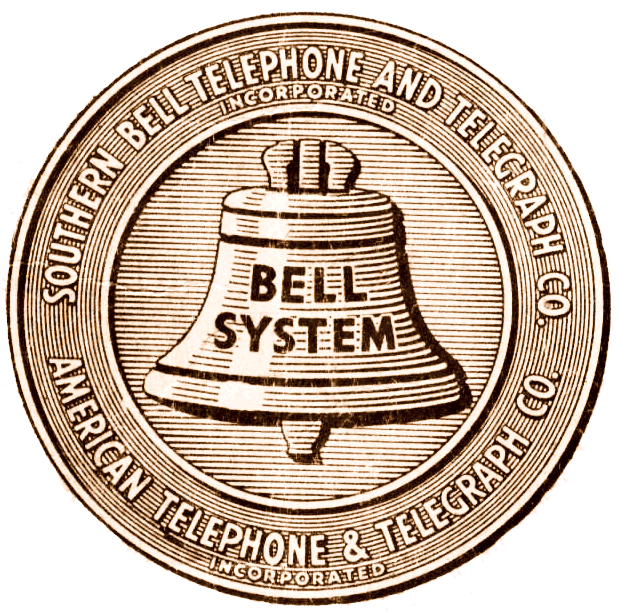The U.S. Federal Communications Commission on Tuesday reaffirmed its 2022 decision to deny SpaceX satellite internet unit Starlink $885.5 million in rural broadband subsidies.
The FCC said the decision impacting Elon Musk’s space company was based on Starlink’s failure to meet basic program requirements and that Starlink could not demonstrate it could deliver promised service after SpaceX had challeged the 2022 decision.
So…Elon, the “Self Made” businessman is taking government subsidies? More likely than you think.
Every major corporation gets lots of subsidies from the government and few actually deliver what they promised in exchange. But yeah, yet another hyped up product by Musk today fails to live up to the promises. In this case it’s because the sats still need to communicate directly with the grind station instead of being able to bounce signals between them. That was the original promise and it’s still far from becoming reality.
Failed to live up to their promise? The whole point of these specific subsidies is to be at X in year 2025. The FCC said, nah, you aren’t going to make it there by 2025 (in 2022), so we won’t give you the money to make it there by 2025.
It’s impossible to ever know now if that promise could or could not be met if they don’t meet it as the money was part of that promise.
If they make it there in 2025 in spite of not getting the money, then we’ll know the FCC decision was complete BS
Edit: For reference, SpaceX has almost doubled their 2022 starlink launches (33 vs 60+ (still a couple weeks left). Each launch of the new v2 mini satellites is about 40% more bandwidth than their previous launch (less satellites but 4x bandwidth). And this pace is only going to increase.
There was just a story about starlink slowing down as more customers joined the network.
Seems like a good call. The option is nice for rural areas, but it’s a stopgap measure at best while those areas wait for the slow rollout of fiber.
That is true for absolutely every connection type. Bandwidth is not unlimited, and for any sort of wireless system it is going to be limited by physics in a way wired connections are not.
Your home Wi-Fi connection does the same thing if you have a bunch of devices doing things at the same time. There’s a reason MIMO is becoming a necessity even on home Wi-Fi networks, the average home now has a ton of devices when you start adding things like home assistants, smart devices, phones, tablets, doorbells, etc. onto that network. On a larger scale, the mobile networks have congestion issues all the time as well.
Fiber will never be coming to the rural areas where satellite is really the only option now. The return on investment simply doesn’t exist. It costs hundreds of thousands of dollars to deploy, and the number of customers is simply too low. Unless the government subsidizes it, it will never be installed. And even then, the providers will still not install it and lobby to remove the deployment requirements after they have been paid to do it. They have already done that multiple times since the 1990s, and we’re still being charged for these via surcharges on our monthly bills for things they never did.
Only if capitalists sell bandwidth they don’t have. If I have a 10gbps uplink. And I split the cost and bandwidth equally with 9 other people. Everyone is guaranteed 1gbps at all times. If I brought an 11th person in on the deal. No matter what. No one would be able to get more than 900 megabit per second under maximum load despite the promised 1 gigabit. That’s just capitalist theft.
No. That’s not theft, that’s called selling a specific service amount for a set price. Unused bandwidth is wasted bandwidth. A provider wants the service usage to be near 100% all the time for that return on investment. Oversubscribing is definitely a thing, and every provider does it to some extent, because most people are not on at the same time using full bandwidth. What matters is if they’re maintaining and upgrading infrastructure to keep the service provided within the range they guarantee.
No provider is going to charge a couple hundred dollars a month for you to have your own satellite to yourself, but they can balance the number of subscribers and usage patterns to keep performance in the advertised range. It just depends how well they are able to do that. Starlink is not a fully deployed service, less than half of the currently planned 12,000 satellite constellation is up so far. And they’re already looking at expansion up to 42,000 satellites. Every new launch means more coverage, better stability and more available bandwidth. Some areas have more capacity and coverage than others simply because there are still gaps in the unfinished constellation. This isn’t a GEO satellite service where your satellite is sitting up above at the same constant point with a set capability and supported number of subscribers, where upgrades require replacing the satellite. Starlink can upgrade services by adding satellites to the existing service.
It’s a practice called over selling and no, it is absolutely theft. If it wasn’t theft we would allow it in other areas. Why can’t your electric company do the same to you ? The wires can carry a specific amount of current at any one time. Why aren’t they charging you for that total capacity whether or not you’ll ever use it? The pipes to your house can carry a specific volume of water per hour. Why don’t they charge you even if it doesn’t? Why is it that if you sell 16 oz jars of peanut butter that customers find only actually have about 4 oz on average? You end up in court. But when you sell people, bandwidth etc. That you don’t have. It’s just called good business. Basically why, if this isn’t theft, is it only allowed in the telecommunications industry? And only in consumer telecommunications. Business service is guaranteed bandwidth that they pay for.
It is quite literally theft/ a scam. Just like them selling connections with no cap on total data transfer. That they then proceeded to heavily throttle the moment you went over a few gigabytes. Quickly doing away with it the moment the government started taking a look into their dishonest practices. It’s only “allowed” currently, because not enough consumers are informed enough to really object. ISPs seriously make used car salesmen look almost decent.
to keep performance in the advertised range.
I don’t know of a single provider in my area that advertises a range, they advertise a single number.
Maybe if we required them to advertise a range that might be better? 900mbs-1gbps with aim for over half time+ at 1gbps
Rurally here, HughesNet has existed for years. I have never used its service, but why would anyone have been compelled to switch to Starlink?
In theory, StarLink would have been faster because they use many low-orbit satellites as opposed to a handful of further-away geostationary satellites like HughesNet. But “faster speeds” isn’t everything and this money is meant to expand actual broadband/optical internet.
Thanks. The speed part does make sense.
If they were able to meet the actual up/down metrics for the subsidy, I don’t see why they shouldn’t get it. But they weren’t able to do that, so they don’t get the subsidy.
Affordability is also a thing
The subsidy had a goal of 2025, they said you won’t make it there in 2022. The money was going to be used to help make it there by 2025.
It’s physics. The old satellite Internet uses geosynchronous satellites. That orbit requires the satellite to be 22,300 miles up.
The speed of light is 186,000 miles per second. So the 44,600+ mile round trip takes almost a quarter of a second (250ms) just for the signal to travel up to the satellite and down to the ground station.
250ms added to the normal Internet travel time each way makes for a very delayed internet connection (in practice, 650ms average latency or 2/3rds of a second ). Voice chat has notable pauses, online games becomes practically unplayable, and so on.
It’s a bit hard to visualize sub 1s times, but if you say “how are you” at a normallish speed, the words “how are” would take close to 2/3rds of a second.
Starlink satellites are only 340 miles up. A round trip is less than 4ms. So the packet and the response from the Internet reach you sooner. Also each satellite can handle a fair amount of bandwidth which if the number of users is kept in check means closer to modern bandwidth. Looks like Starlink latency runs about 25ms on land and 100ms in remote areas (far away from a ground station).
Regarding bandwidth (how much data they can send at once), HughesNet seems to offer a max of 50mpbs while Starlink’s current top (business) service is 500mbps.
So they’re both satellite Internet services, but because in the difference in how they are deployed they offer very different speeds and latencies.
Excellent explanation
Starlinks latency with no nearby ground stations will probably get better as more laser links go up as well allowing for more direct routes.
Although the better solution is more ground stations.
Hughes net is popular in my area. It has such severe latency it is unusable for gaming, unfortunately.
Wouldn’t the latency be an issue for Starlink as well? At some point, you’re fighting the speed of light.
That being said, Starlink still saw multi-server latencies under 60 ms in the U.K. (51.26 ms), Spain (53.37 ms), Portugal (55.84 ms), and Belgium (59.34 ms). Starlink saw most countries’ multi-server latencies between 60 and 90 ms.
I thought I read that the latency increased since it first launched but it seems like they’re doing pretty well.
No, due to the physical location of the sats. A much lower orbit and light delay only adds like 30ms of latency, versus HighesNet with something in the realm of 700ms.
Looks like Hughesnet starts at 15 GB per month and 15Mbs down for $49.99 a month**
**Monthly Fee reflects the applied $5 savings for ACHⓘ enrollment. Enroll before the 2nd billing cycle for continued savings.
Service plans require a 24-month commitment. Equipment Lease or Purchase fees extra.
That is pretty bad.
It’s better to just use Visible. $25/month for unlimited data.
not everywhere has cell service
Ping/latency…and upload speed.
Traditional satellite internet using geostationary satellites not only have bandwidth limitations but also very high latency. This is simply physics, even at the speed of light, GEO is pretty darn far out. For regular web browsing that’s not an issue, but anything that is latency dependent either starts failing or becomes unbearable.
Latency to GEO is about 500 milliseconds, that’s half a second for a request you send to get up there, then another half second for it to be sent back to ground stations, then normal internet latency, then another second back up and then down to you. So you have normal internet latency, plus 2 seconds, at the best of times. So things like VoIP and gaming often have many more issues, or sometimes may not even be really usable.
The Starlink contstellation being in a Low Earth Orbit means a much lower latency. Real world latency has been around or below 100ms total, similar to LTE latency times. In the real world it is just more like a mobile connection that works even in the middle of nowhere.
dope. no more making the public pay for things that will be privately owned and exploited for profit. sorry rich people, pull yourself up by your bootstraps and stop eating so much avocado toast.
Uhh this money is still going to get allocated to someone.
Yeah it is. To the shitty cable companies we’ve had for years that have promised to serve rural areas but never have. But it seems like the most important thing is the unions that install and service that cable.
Not to mention starlink is used to help our enemies with convenient service disruptions at the behest of Putin no doubt.
I realize this is about rural broadband but it’s still relevant as it’s government subsidy
They say that now, but wait until they get Slammed or Blasted on X.
So the article doesn’t give any claimed reasons, seems very biased or at least poorly written.
From some of the gaps in the article and way too much speculation, I think the reasons were:
- Existing service didn’t meet a bandwidth requirement
- Scale out requires Starship, which has not flown yet
So I do believe this is our best hope for universal rural broadband, but it’s not a done deal. It’s never been done and the launch rate is beyond current technology, so there is no way to predict. At least traditional providers have known technology, and lots of experience. They suck and will never deliver but they could.
No, the article reports as much information as is publicly available. If the FCC wanted to be more specific in their reasoning, they would’ve been. Reporters can’t just magically make recalcitrant public officials talk. This is an example of poor media literacy on your part.
Thank GOD, Kessler Syndrome avoided… for now.
Look up how many Starlink Sats were launched amd how many never even achieved stable orbit, how many decayed after one or two full orbits, and the how many that actually achieved orbit /functionally work for internet relay/, with a bunch just broken useless extremely low earth orbiti g space garbage.
I cant find the original source I used to check that out a year ago, but if memory serves we are looking at a plus 70% failure rate if you only count sats with stable orbits that actually provide internet service ( ie, survived launch and orbital insertion with their electronics intact ) as ‘successful.’
Functionally the US taxpayer has subsidized Starlink to basically throw up a bunch up space debris…
… And Musk already stated last year (before his im gonna buy twitter so people will like me meltdown) that SpaceX will go bankrupt if they dont make their StarLink launches timetable.
I am pretty sure they didnt, and not continuing to recieve gov subsidies (remember when Musk tweeted… or xweeted… that all government subsidies should be cancelled, not too long ago?) … just maybe might accelerate the bankruptcy of SpaceX.
Tesla is fucked, SpaceX is fucked, Twitter is fucked… does the Boring Company even still exist? and oh dear god Neuralink is a quadruple monster truck figure 8 demolition derby trashfireultrafuck.
Is it possible that Musk might actually go bankrupt and be sent to jail for the absurd amount of fraud he has done?
If you’re reading my comment and you didn’t click expand on the one above…go back and do so. It gets better and better.
Wow. Each paragraph just gets better and better. Just a bit more unhinged as it goes on.
There’s a lot to criticize Musk and his companies for, but by the end of that comment it’s just detached from reality.
Thank fuck. Can we stop funding this grifter?
Ahhhh, that’s why he begged Investors for more money











